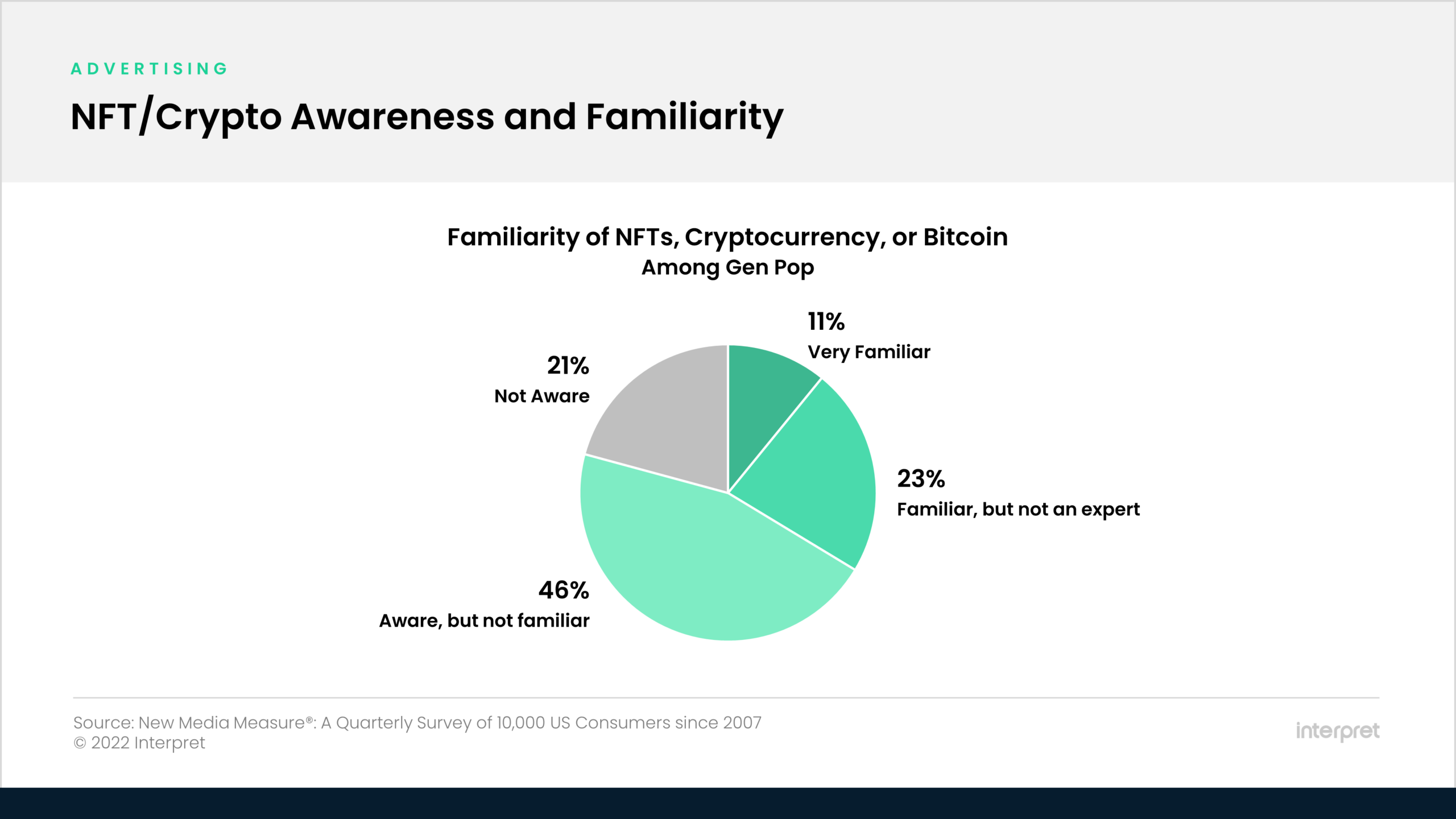In the lead up to Halloween, Hollywood giant Universal Studios teamed with crypto payment platform MoonPay to offer visitors to its Universal Theme Parks (California and Florida) an NFT-based scavenger hunt. The Halloween-themed event started on October 15th and ran through the holiday, enabling park visitors to scan seven QR codes hidden at each park. Each time a QR code got scanned, it minted an NFT, with a possible total of 7 million minted through minting service Hypermint. Redeeming the NFTs unlocked perks for park visitors, especially those who could locate all seven.
Although metrics on how successful the scavenger hunt was haven’t been made public, it’s a unique showcase for how a major entertainment brand can leverage its marketing muscle in the real world with a digital, Web3 component. NFTs for much of the past year or more have come to be associated with collectibles, digital artwork, and speculative investing, but what Interpret’s VideoWatch report, NFTs in Entertainment: Dynamics and Opportunities, found is that there’s been a shift towards NFTs for utility. Universal’s collaboration with MoonPay to bolster engagement at its theme parks is a perfect example of this trend.
“We’re really excited about this because this is a real-world use case that we’ve been trying to demonstrate with people,” MoonPay CEO Ivan Soto-Wright told The Block. “We’re going beyond just the profile picture identity movement with NFTs to actual real-world utility.”
Beyond the appeal of a Halloween-themed scavenger hunt, what’s interesting is just how streamlined the whole initiative is, particularly with regards to just how little a consumer needs to know in order to take part in the fun. While NFTs require consumers to set up a crypto wallet, this is something that MoonPay handles for customers on the back end. No familiarity with crypto or NFTs is necessary, as the consumer only needs to put in an email address on a claim page, as with any other web-based offer.
This kind of approach to NFTs and Web3 initiatives could go a long way towards mainstreaming the technology. Interpret’s NFT report finds that while awareness of NFTs is relatively high, only about one-third of US consumers is actually familiar, with just 11% stating that they’re “very familiar.” As more entertainment brands and consumers end up using NFTs for utility purposes, there’s going to be an ongoing educational component for both sides, and in many cases, we’ll see a lot of trial-and-error projects. Ultimately, however, the companies that can make the entire NFT experience as seamless as possible are likely to gain an edge as Web3 takes hold.







